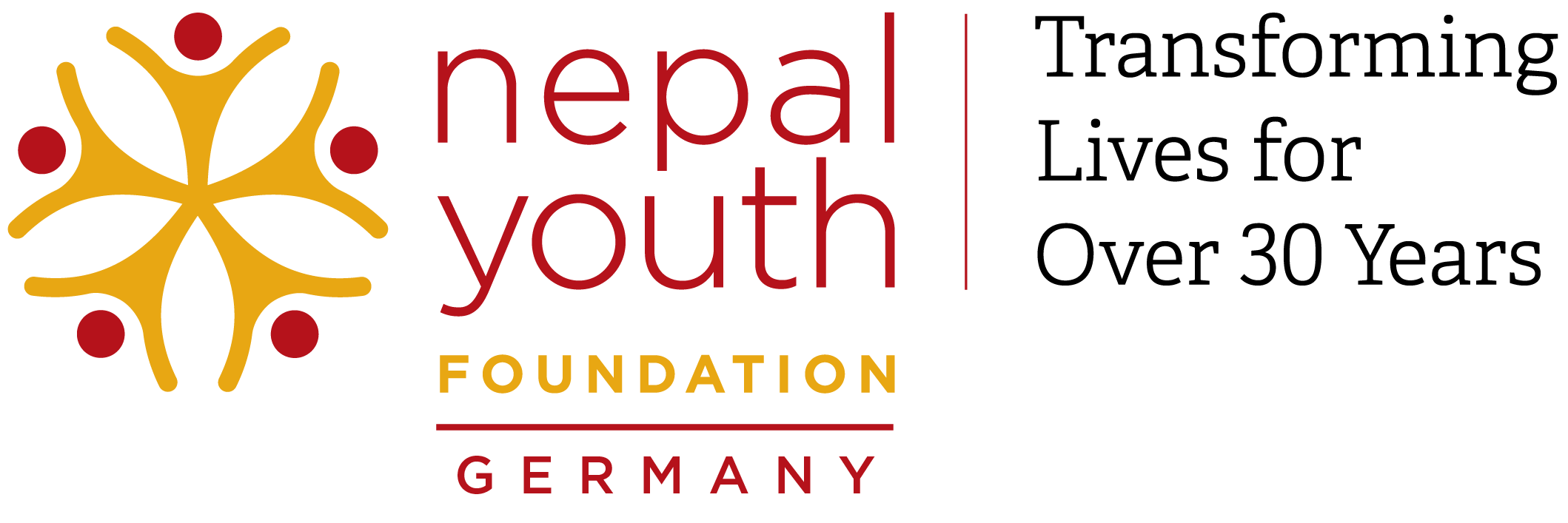Wir danken Ihnen, dass Sie diesen Kindern das größte Geschenk überhaupt machen – eine Kindheit ohne Angst und Entbehrungen, eine angemessene Bildung und die Möglichkeit ihr Potenzial zu erreichen.
Spendenaufruf der Nepal Youth Foundation Germany e.V.
Bitte spenden Sie unter Verwendungszweck „Zugang zu Bildung“ an die
Nepal Youth Foundation Germany e.V.
Volksbank Kurpfalz
IBAN: DE12 6709 2300 0033 2622 56
BIC: GENODE61WNM
Überweisungen bis 200 Euro gelten als Spendenquittung. Wenn Sie uns Ihre Adresse mitteilen, senden wir Ihnen auch gerne eine Spendenquittung zu.
Alternativ können Sie auch über das Spendenformular über den Anbieter „Betterplace“ spenden, hierbei ist allerdings zu beachten, dass Betterplace eine kleine Gebühr der gespendeten Summe behält. Bei einer direkten Spende an das Konto kommt die komplette Summe den Projekten der Nepal Youth Foundation zugute.
Im Namen der gesamten Nepal Youth Foundation und der von uns unterstützten Kinder und Jugendlichen danken wir sehr herzlich.
Für folgende Projekte können Sie bei „Betterplace“ spenden:
BERUFLICHE BILDUNG
- Das Ausbildungsprojekt „build up the workshop“ –die Drechselwerkstatt
Unsere Drechsel- und Schreinerausbildungswerkstatt ist Teil der Olgapuri Vocational School (Berufsschulzentrum). Gemeinsam mit der Drechselstube Neckarsteinach haben wir die Werkstatt 2016 eingerichtet.
Seither bauen wir diese mit Maschinen und Werkzeugen weiter aus und sorgen für die Weiterqualifizierung der Ausbilderinnen und Ausbilder.
Wir benötigen Mittel für:
- den Unterhalt des laufenden Betriebes
- Maschinen, Werkzeuge, Ersatzteile, Materialien
- Weiterqualifizierungsmaßnahmen
- Berufliche Bildung für ehemalige Kamalari (Haussklavinnen) –
Wir unterstützen die Ausbildungsprogramme SAAET (Sustainable Agricultural and Entrepreneur Training) und Industrial Tayloring.
Diese Programme sind speziell für junge Frauen entwickelt worden und werden vor allem von ehemaligen Kamalari nachgefragt.
Im Ausbildungszweig SAAET werden u.a. Grundlagen biologischer Anbaumethoden sowie grundlegende betriebswirtschaftliche Kenntnisse zur Vermarktung der Produkte vermittelt.
Das Programm „Industrial Tayloring“ schafft die Voraussetzungen für eine Anstellung im industriellen Schneiderhandwerk.
Während ihrer Schulungen finden die jungen Frauen eine sichere Unterkunft im GIRLS HOSTEL. Es bietet Platz für ca 40 Personen.
Den Bau des Girls Hostel haben wir vom ersten Kontakt mit den Sponsoren bis zu seiner Fertigstellung 2021 durch ein begleitendes Projektmanagement ermöglicht. Die Finanzierung erfolgte durch die Damkowskistiftung Hamburg
Wir benötigen Mittel für
- den Unterhalt des GIRLS HOSTELS
- Materialien für SAAET und Industrial Tayloring
- Weiterqualifizierungsmaßnahmen
IBAN: DE12 6709 2300 0033 2622 56
BIC: GENODE61WNM
Nepal ist ein Land, in dem es einfach ist einen Unterschied zu machen.
Jeder Euro, jeder Dollar kann viel bewirken:
$100
decken die Schulkosten eines Kindes für ein Jahr.
$260
können verhindern, dass ein Kind aufgrund von Unterernährung stirbt.
$750
können einem aufgeweckten jungen Erwachsenen den Besuch der Universität für ein Jahr garantieren.
$860
bieten eine Berufsberatung und eine Berufsausbildung für ein Mädchen, welches aus der Sklaverei gerettet wurde.
$1900
fördern ein Kind in Olgapuri.




